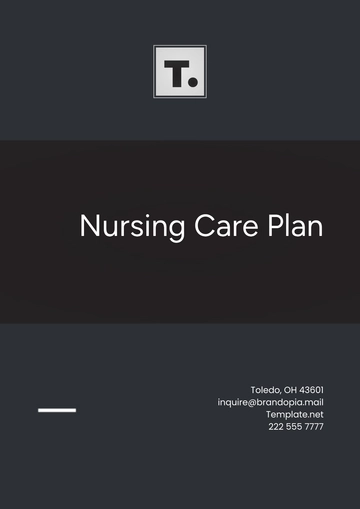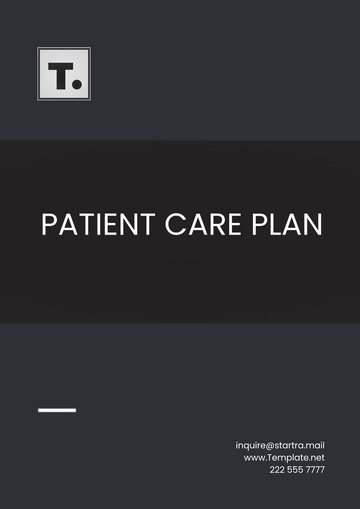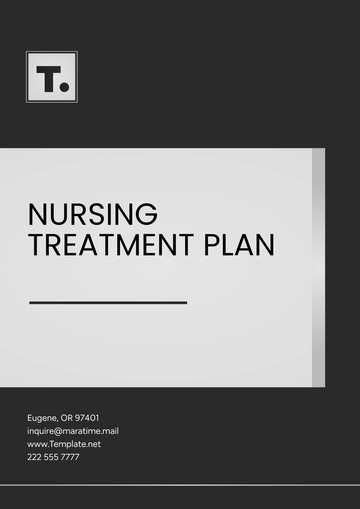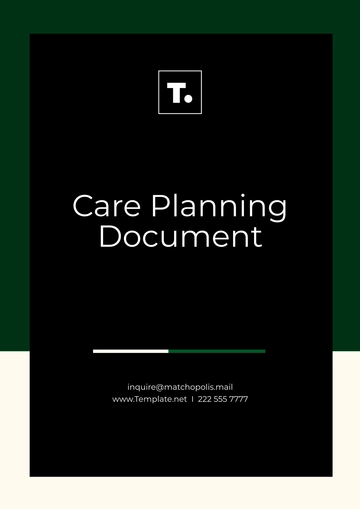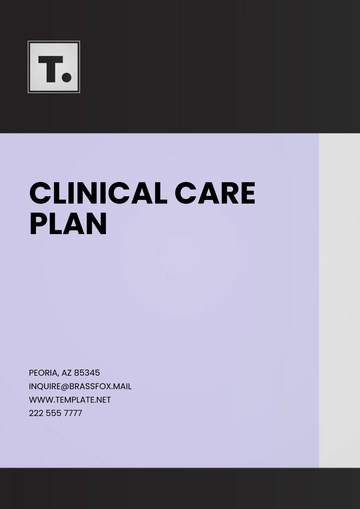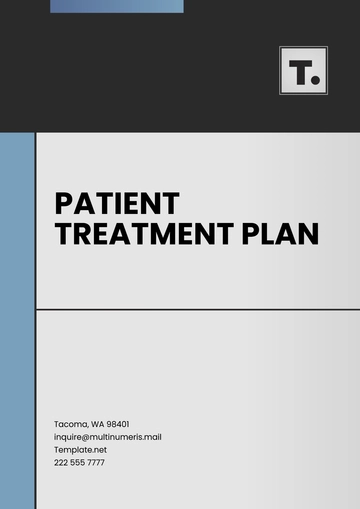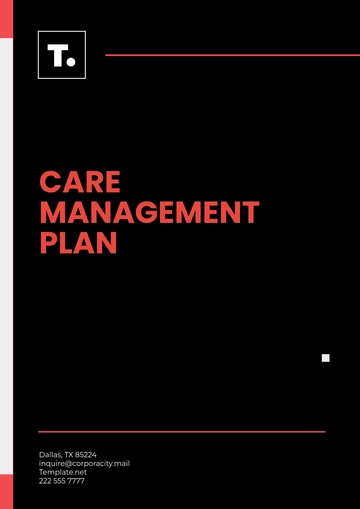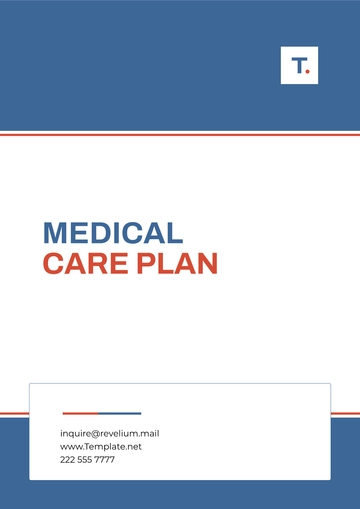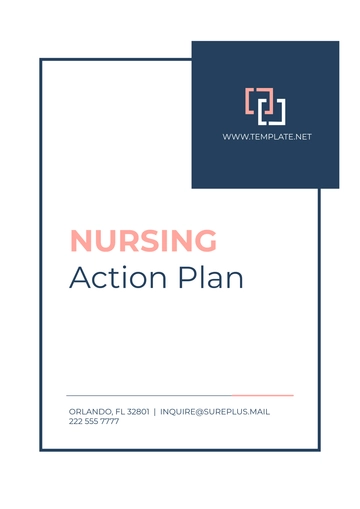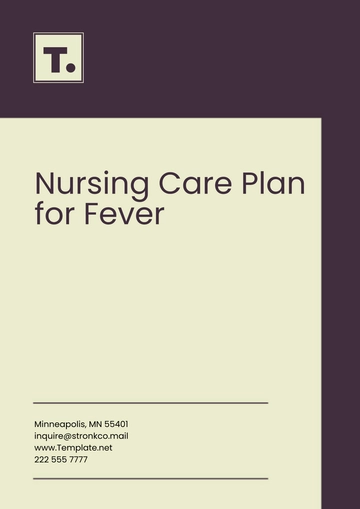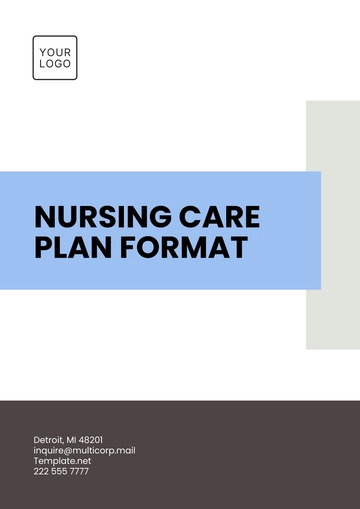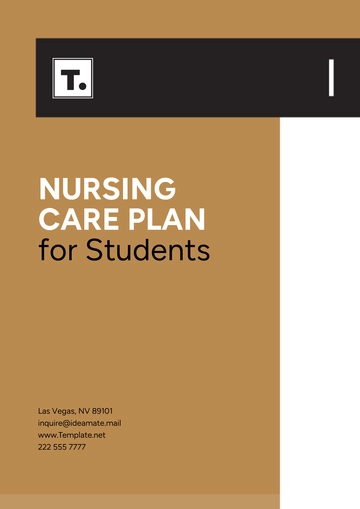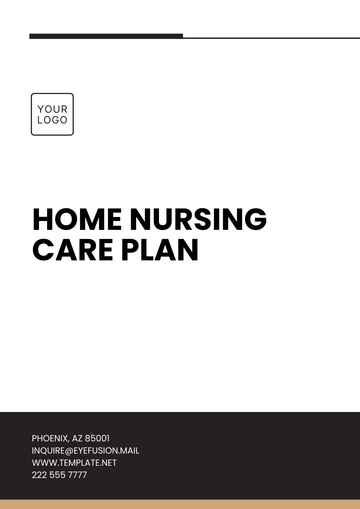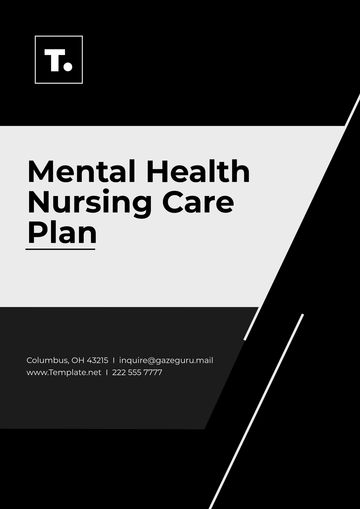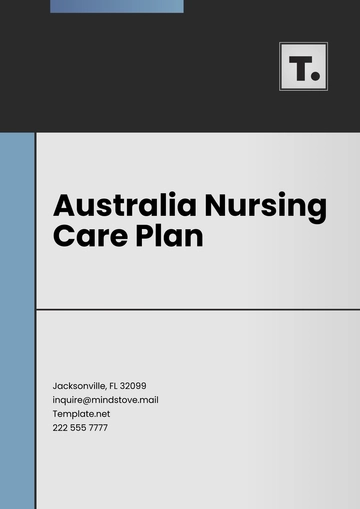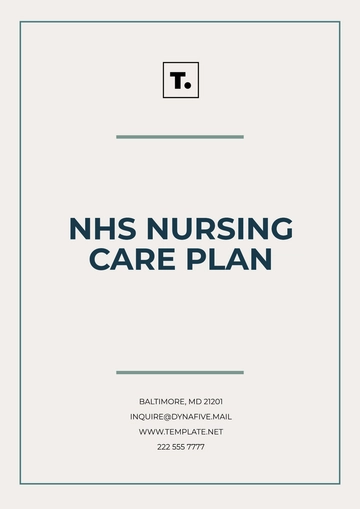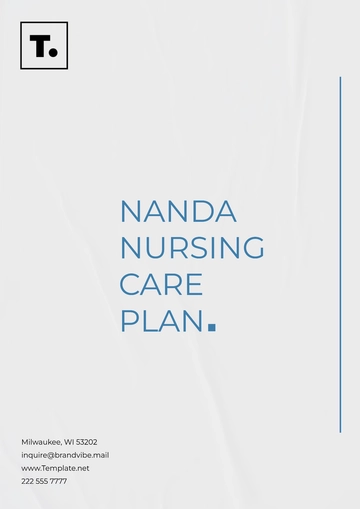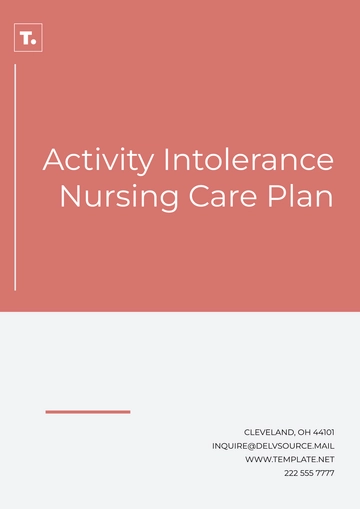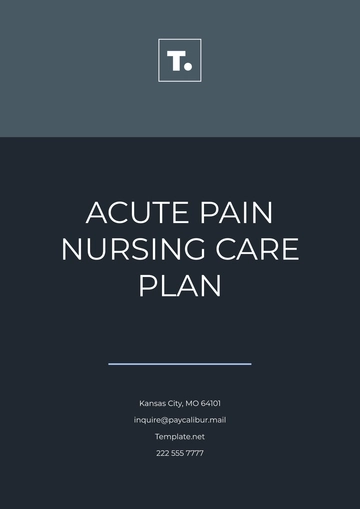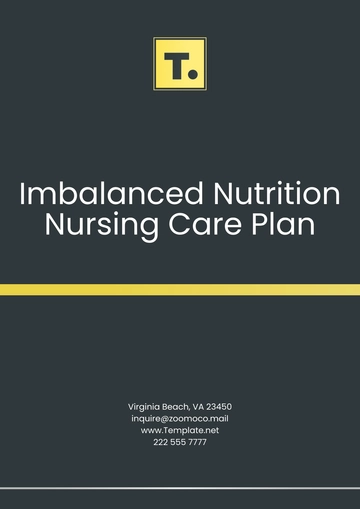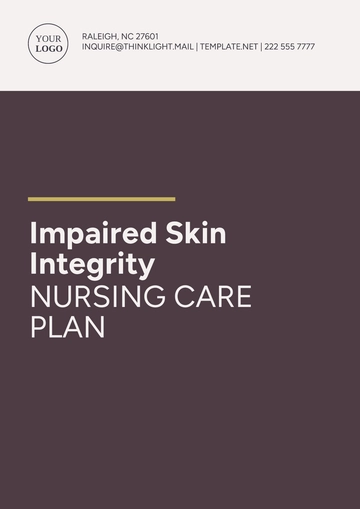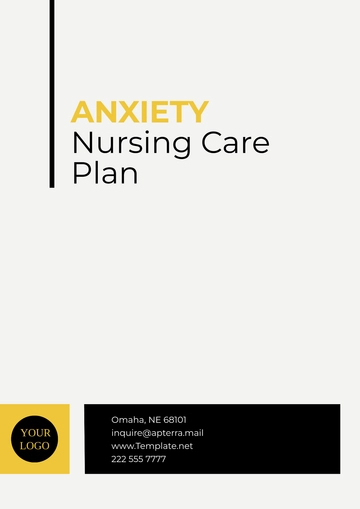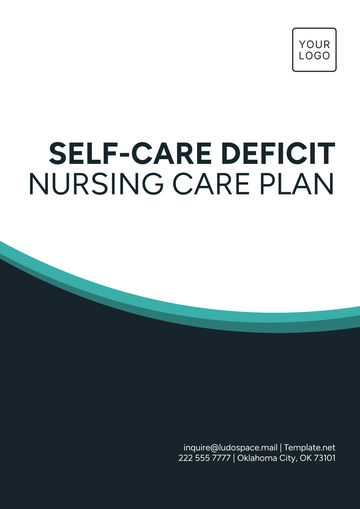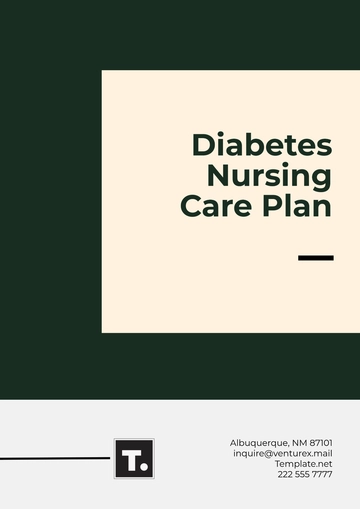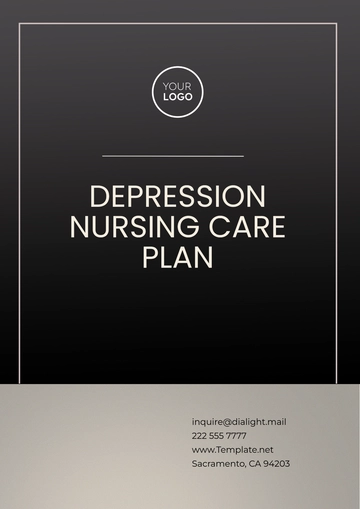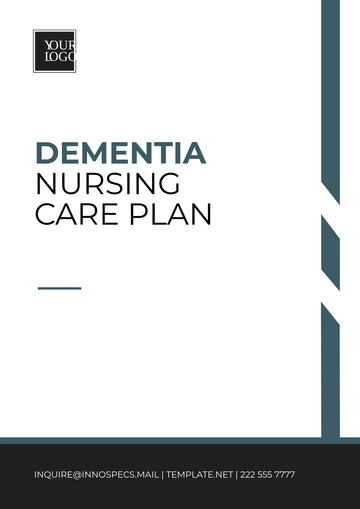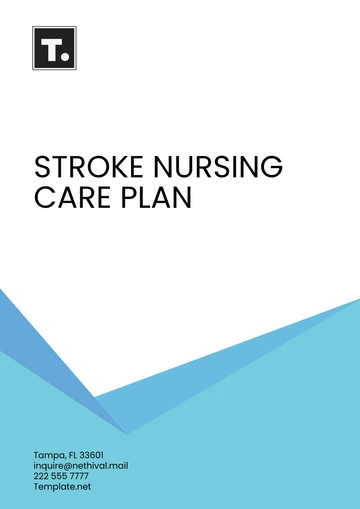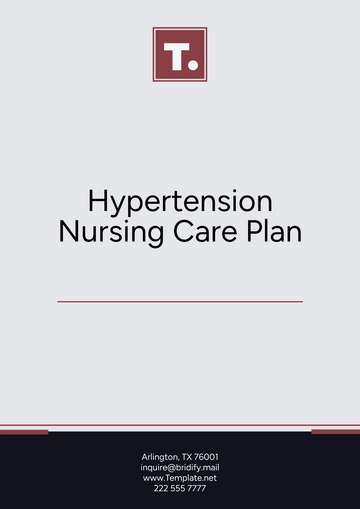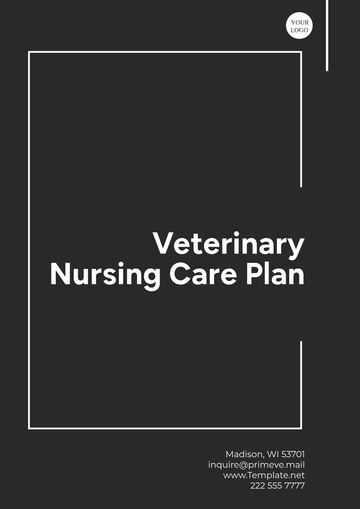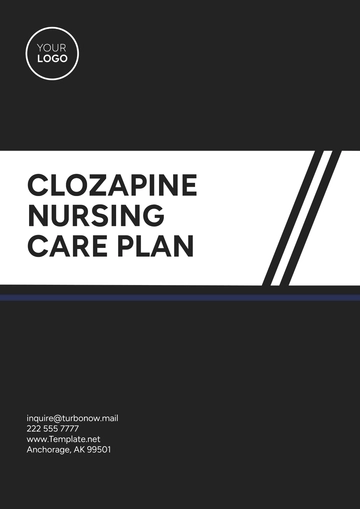Free Hypertension Nursing Care Plan
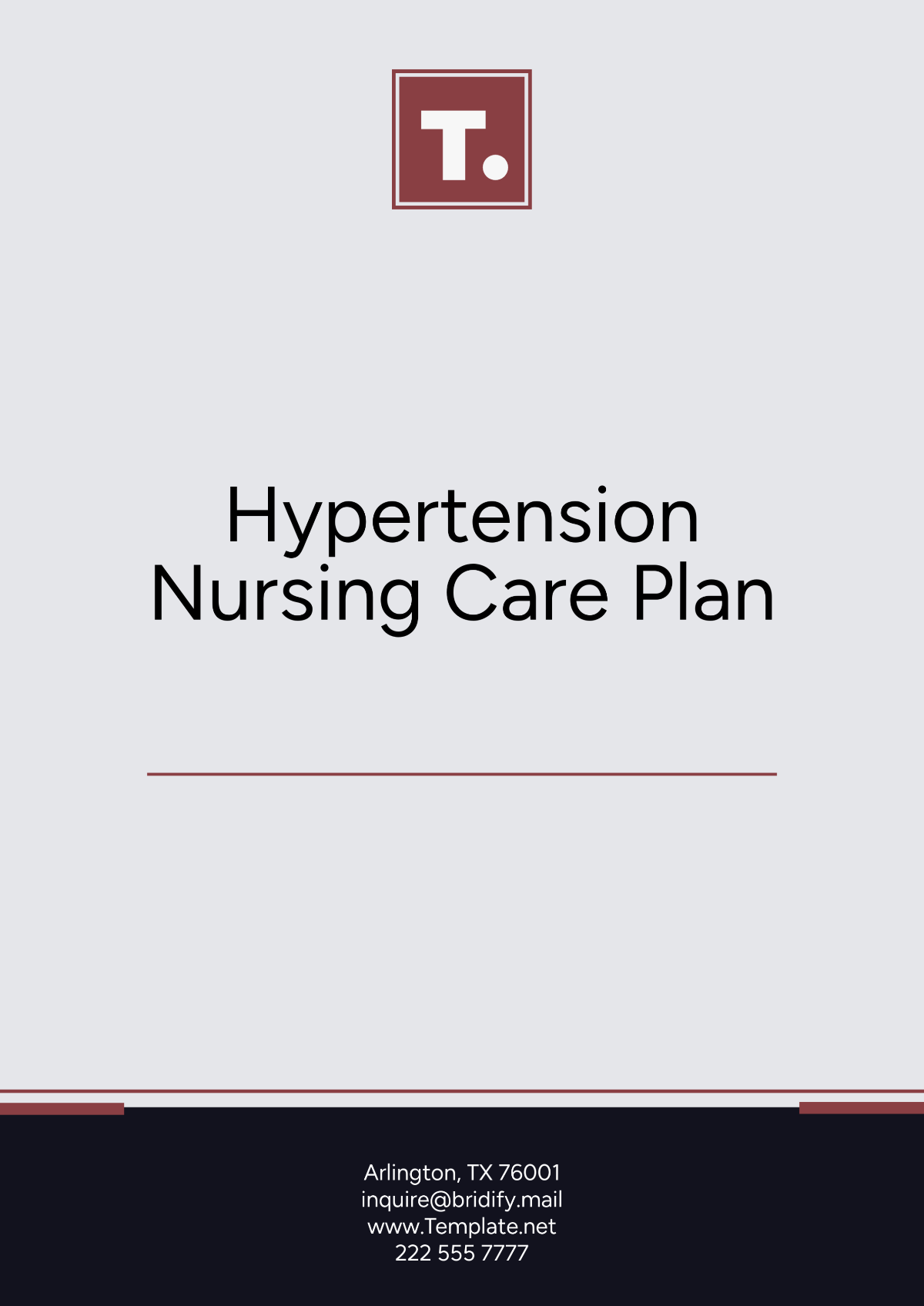
Prepared by: [YOUR NAME]
Email: [YOUR EMAIL]
Date: November 12, 2050
Patient Information
Patient Name: Maxwell Mante
Age: 56
Sex: Male
Diagnosis: Hypertension, Stage 2
Medical Record Number: 00123456
Date of Admission: November 10, 2050
Care Plan Review Date: November 17, 2050
Nursing Diagnosis
Primary Diagnosis: Ineffective Health Maintenance related to non-adherence to lifestyle changes and hypertension management as evidenced by elevated blood pressure readings (160/110 mmHg) and poor dietary habits.
Secondary Diagnosis: Risk for Stroke related to uncontrolled hypertension.
Goal(s)
Short-term Goal:
The patient will demonstrate correct blood pressure self-monitoring techniques by November 17, 2050.
Long-term Goal:
The patient will achieve a blood pressure reading within the target range of 130/80 mmHg by January 10, 2051, through adherence to medication and lifestyle modifications.
Nursing Interventions
Intervention | Rationale | Expected Outcome |
|---|---|---|
Assess vital signs daily, focusing on blood pressure readings. | To monitor the patient's hypertension status and detect changes in condition early. | Blood pressure monitored regularly; changes are addressed promptly. |
Educate patient on proper blood pressure monitoring techniques. | Ensures the patient understands how to monitor their own blood pressure effectively. | Patient will demonstrate accurate blood pressure readings. |
Encourage dietary changes, including low-sodium foods, and educate about DASH diet. | Dietary changes can help reduce blood pressure and improve cardiovascular health. | Patient adheres to low-sodium, DASH diet plan. |
Promote regular physical activity, such as 30 minutes of walking per day. | Regular exercise lowers blood pressure and improves heart health. | Patient begins regular physical activity routine. |
Monitor and assist with medication adherence, specifically antihypertensive medications. | Ensures the patient takes prescribed medications correctly to maintain blood pressure control. | Patient adheres to prescribed medication regimen. |
Patient Education
Medication Management: Explain the importance of adhering to prescribed antihypertensive medications (e.g., Lisinopril 10 mg daily) to control blood pressure.
Dietary Changes: Educate about the DASH diet, emphasizing the importance of reducing sodium intake and increasing potassium-rich foods like bananas and leafy greens.
Physical Activity: Recommend regular exercise, such as walking, cycling, or swimming, for at least 30 minutes, five days a week.
Stress Management: Introduce relaxation techniques like deep breathing exercises, yoga, and mindfulness to reduce stress.
Self-monitoring: Teach the patient how to measure blood pressure using a home blood pressure monitor, ensuring they understand the target range.
Evaluation and Outcome
Goal | Progress/Outcome | Date of Evaluation |
|---|---|---|
Achieve a blood pressure of 130/80 mmHg | Patient's blood pressure improved to 138/88 mmHg after 4 weeks of medication adherence and lifestyle changes. | December 10, 2050 |
Demonstrate self-monitoring of blood pressure | Patient successfully demonstrated accurate blood pressure measurement. | November 17, 2050 |
Adherence to dietary changes | Patient reports following a low-sodium diet and increased consumption of fruits and vegetables. | December 10, 2050 |
Engagement in physical activity | Patient began walking for 30 minutes daily, five days per week. | December 10, 2050 |
- 100% Customizable, free editor
- Access 1 Million+ Templates, photo’s & graphics
- Download or share as a template
- Click and replace photos, graphics, text, backgrounds
- Resize, crop, AI write & more
- Access advanced editor
The Hypertension Nursing Care Plan Template from Template.net provides a customizable and editable solution for healthcare professionals. Easily modify the plan to meet specific patient needs using the user-friendly AI Editor Tool. This comprehensive template simplifies the creation of effective care strategies, ensuring optimal patient outcomes. Perfect for nurses and clinicians seeking efficiency and accuracy.
You may also like
- Finance Plan
- Construction Plan
- Sales Plan
- Development Plan
- Career Plan
- Budget Plan
- HR Plan
- Education Plan
- Transition Plan
- Work Plan
- Training Plan
- Communication Plan
- Operation Plan
- Health And Safety Plan
- Strategy Plan
- Professional Development Plan
- Advertising Plan
- Risk Management Plan
- Restaurant Plan
- School Plan
- Nursing Home Patient Care Plan
- Nursing Care Plan
- Plan Event
- Startup Plan
- Social Media Plan
- Staffing Plan
- Annual Plan
- Content Plan
- Payment Plan
- Implementation Plan
- Hotel Plan
- Workout Plan
- Accounting Plan
- Campaign Plan
- Essay Plan
- 30 60 90 Day Plan
- Research Plan
- Recruitment Plan
- 90 Day Plan
- Quarterly Plan
- Emergency Plan
- 5 Year Plan
- Gym Plan
- Personal Plan
- IT and Software Plan
- Treatment Plan
- Real Estate Plan
- Law Firm Plan
- Healthcare Plan
- Improvement Plan
- Media Plan
- 5 Year Business Plan
- Learning Plan
- Marketing Campaign Plan
- Travel Agency Plan
- Cleaning Services Plan
- Interior Design Plan
- Performance Plan
- PR Plan
- Birth Plan
- Life Plan
- SEO Plan
- Disaster Recovery Plan
- Continuity Plan
- Launch Plan
- Legal Plan
- Behavior Plan
- Performance Improvement Plan
- Salon Plan
- Security Plan
- Security Management Plan
- Employee Development Plan
- Quality Plan
- Service Improvement Plan
- Growth Plan
- Incident Response Plan
- Basketball Plan
- Emergency Action Plan
- Product Launch Plan
- Spa Plan
- Employee Training Plan
- Data Analysis Plan
- Employee Action Plan
- Territory Plan
- Audit Plan
- Classroom Plan
- Activity Plan
- Parenting Plan
- Care Plan
- Project Execution Plan
- Exercise Plan
- Internship Plan
- Software Development Plan
- Continuous Improvement Plan
- Leave Plan
- 90 Day Sales Plan
- Advertising Agency Plan
- Employee Transition Plan
- Smart Action Plan
- Workplace Safety Plan
- Behavior Change Plan
- Contingency Plan
- Continuity of Operations Plan
- Health Plan
- Quality Control Plan
- Self Plan
- Sports Development Plan
- Change Management Plan
- Ecommerce Plan
- Personal Financial Plan
- Process Improvement Plan
- 30-60-90 Day Sales Plan
- Crisis Management Plan
- Engagement Plan
- Execution Plan
- Pandemic Plan
- Quality Assurance Plan
- Service Continuity Plan
- Agile Project Plan
- Fundraising Plan
- Job Transition Plan
- Asset Maintenance Plan
- Maintenance Plan
- Software Test Plan
- Staff Training and Development Plan
- 3 Year Plan
- Brand Activation Plan
- Release Plan
- Resource Plan
- Risk Mitigation Plan
- Teacher Plan
- 30 60 90 Day Plan for New Manager
- Food Safety Plan
- Food Truck Plan
- Hiring Plan
- Quality Management Plan
- Wellness Plan
- Behavior Intervention Plan
- Bonus Plan
- Investment Plan
- Maternity Leave Plan
- Pandemic Response Plan
- Succession Planning
- Coaching Plan
- Configuration Management Plan
- Remote Work Plan
- Self Care Plan
- Teaching Plan
- 100-Day Plan
- HACCP Plan
- Student Plan
- Sustainability Plan
- 30 60 90 Day Plan for Interview
- Access Plan
- Site Specific Safety Plan
